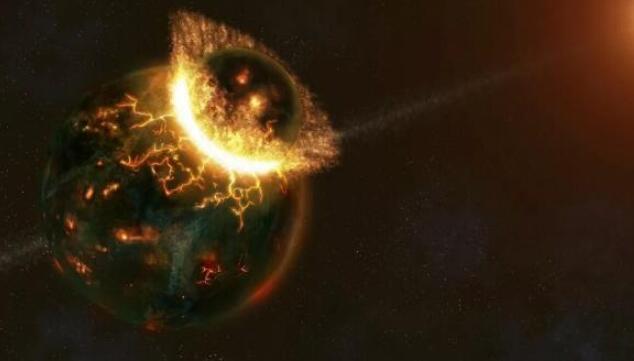As the closest planet to earth, the moon has always been a key celestial body for mankind. Despite the fact that mankind has launched many probes to the moon and has even gone to the moon itself, the moon is still full of mysteries for mankind, and one of the biggest mysteries is, how did the moon actually form?
The mystery of the moon's origin
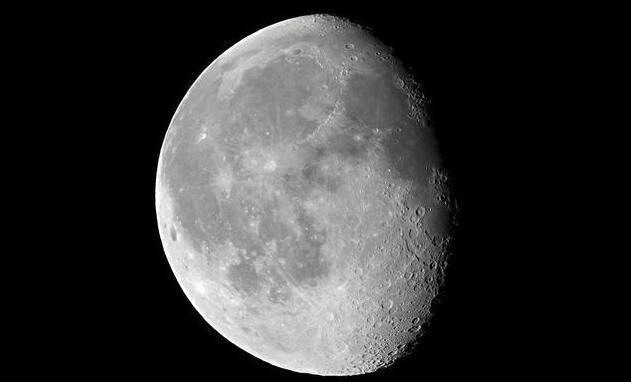
Scientists have proposed various hypotheses about the origin of the moon, such as the "Capture theory", which suggests that the moon was a "Passing" Body captured by the earth, and the "Homologation theory the "Homology theory" Suggests that the moon and the earth were formed at the same time in close proximity to each other in the solar nebula, and the "Grand collision hypothesis" Suggests that a planet collided with the earth 4.5 billion years ago, and that the moon originated from this collision event.
Among these theories, the "Grand collision hypothesis" Stands out because it better explains many of the phenomena that exist in the earth-moon system, such as the difference in volume and density between the moon and the earth, the speed of the earth's rotation, the chemical composition and isotopic ratios of lunar samples, and so on.
How did the moon form in this collision?
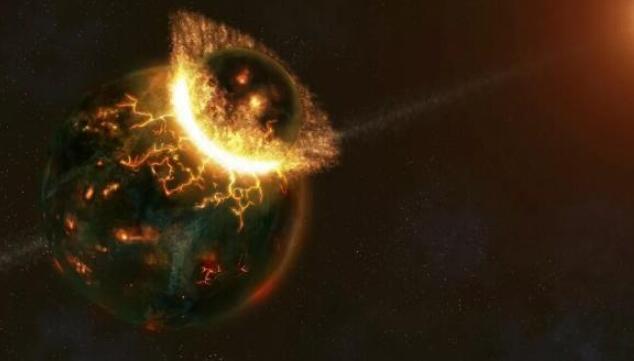
The planet that impacted the earth was named "Theia", which, according to the "Grand collision hypothesis", formed in the protoplanetary disk at the same time as the earth at the beginning of the solar system theia was smaller than earth because there was relatively little material in the region where it formed, and was about the size of the planet we see today, mars.
One day, 4.5 billion years ago, theia coincided with the earth's orbit and the two planets collided at a relative speed of 5 kilometres per second, at an impact angle of about 45 degrees. During the collision, some of the kinetic energy of the two planets was converted into heat, causing most of the material in the impact area to melt.
"Theia was almost smashed to pieces and the earth was badly hit, although the earth was able to keep from being torn apart by the strong gravitational binding energy, a large amount of mantle material was thrown into space along with some of theia's debris. After this, the theia was thrown into space.
After this, the remains of theia gradually merged into the almost collapsed earth, which gradually reverted to a sphere by gravity, while the ejected material, bound by the earth's gravity, rotated around the earth and accreted into each other, eventually forming a new planet that became the earth's satellite, which we on earth now call the moon, 4.5 billion years later.
The planet that collided with the earth 4.5 billion years ago has been found?
At the lunar and planetary science conference in march 2021, scientists made an interesting point: The planet that collided with the earth 4.5 billion years ago has not completely disappeared and may be inside the earth.
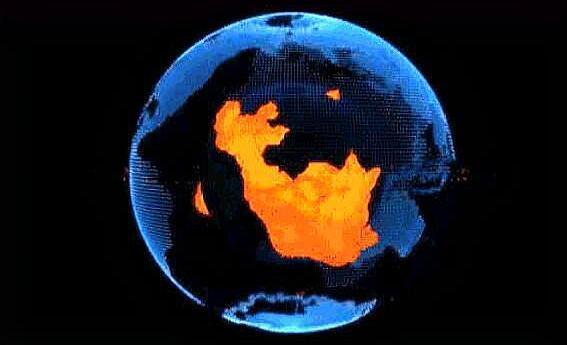
It is important to note that the idea is not a wild guess, but is backed up by relevant research, so let's see how this works.
Earthquakes are a common natural phenomenon, and on average, millions of earthquakes occur on earth each year, except that the vast majority are so minor that they are largely imperceptible to humans. Each earthquake produces seismic waves that travel through the earth's interior, and by analysing how they travel, scientists can peer into the secrets of the earth's interior.
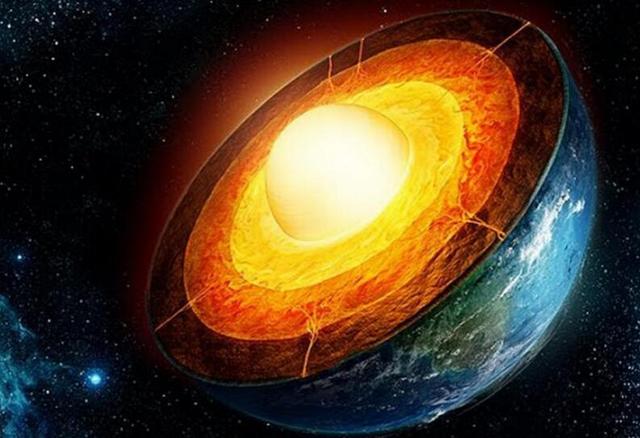
In fact, the familiar model of the earth's structure (i.e. The earth is divided into the core, the mantle and the crust) is known by this method. As technology has become more sophisticated in its detection and analysis of seismic waves, a technique has been developed that allows virtual imaging of the earth's interior - seismic tomography.
With the help of this technique, scientists were surprised to discover that there are two huge areas inside the earth that are clearly separated from the surrounding material and are significantly denser than the surrounding material - in other words, there are two huge structures inside the earth.
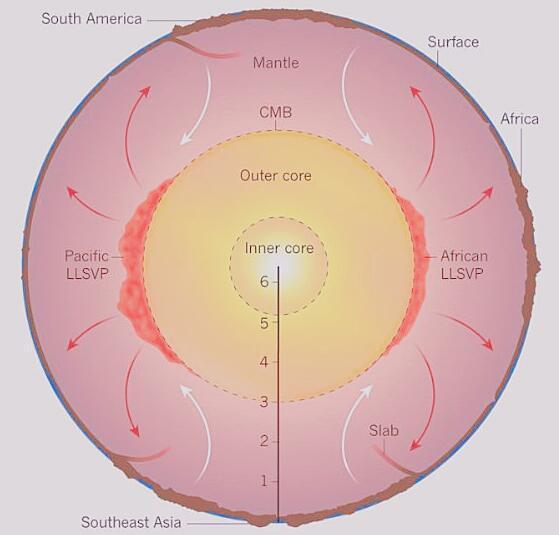
As shown above, these two giant structures, one beneath the pacific llsvp and the other beneath africa llsvp, are both located near the earth's equator and measurements show that they have a total volume of about 14.2 trillion cubic metres and are up to 1000 km thick at their thickest point.
Scientists believe that these two giant structures inside the earth are likely the remnants of the planet that collided with the earth 4.5 billion years ago, in a tragic collision that eventually incorporated the planet's remains into the earth.
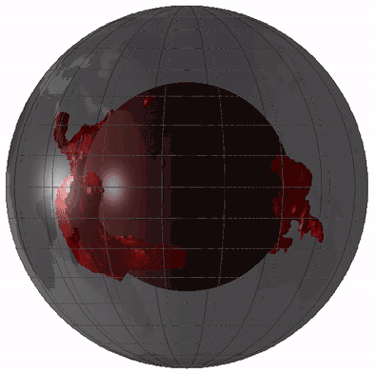
Although the discovery of these two giant structures in the earth's interior can be explained by the "Grand collision hypothesis", it is impossible to go deep into the earth's interior with today's technology, so this is only a reasonable hypothesis and not a conclusion given by scientists.


